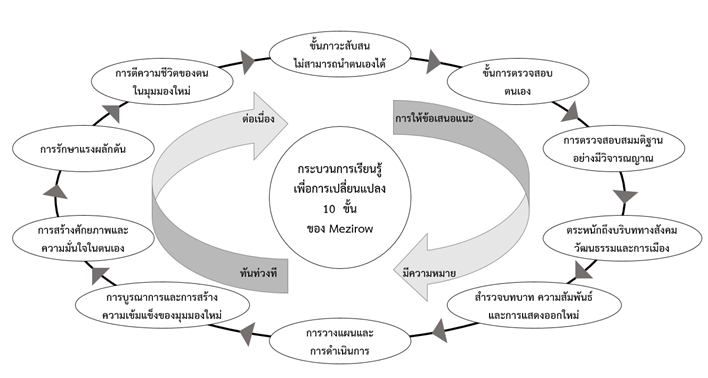Nurturing Global Citizenship and Personal Development through Field Trips: A Proposal Efficient Practical Design
Keywords:
Field trip, Global citizenship, Self-development, Learning experience managementAbstract
Field trips play a crucial role in enhancing learners' at all level of education by providing them with real-world experiences and challenging their beliefs. This article aims to present field study practices for educators and event organizers to nurture global citizenship and self-development through the design and management of field trips. Drawing upon existing literature, a six-step proposal for effective field trip practices is outlined. 1) Framework: Identify goals, objectives, and alignment of field trip activities with the curriculum. 2) Plan: Provide challenging learning experiences that are meaningful to learners. 3) Set actions: Create critical reflections by stimulating questioning. 4) Promoting learning: Raise awareness of cultural diversity. 5) Evaluation: Evaluate learning outcomes and give immediate feedback. 6) Reflection for development: Evaluate activities in all dimensions and develop effective guidelines. Implementation of these practices should address five important considerations. 1) Educational activities during field trips should be supportive, challenging, and meaningful to learners, with a clear action plan and systematic coordination among stakeholders. 2) Venues should be selected in line with the activities and curriculum, and effective guide leaders should be identified or developed. 3) A comprehensive learning experience should be prepared to engage all participants, challenging their previous experiences and allowing for the sharing of real-world experiences and reflection. 4) Participants should be encouraged to present their ideas and actively listen to their peers. 5) Project results should be evaluated, and the findings should inform the creation of effective practices for future field trips. Conclusion, field trips typically span 1-3 days and, when designed and executed effectively, can provide students with impressive, meaningful, and reflective real-world experiences. These experiences have the potential to nurture self-awareness, nurture global citizenship, and facilitate the personal development of learners.
References
UNESCO. The ABCs of global citizenship education [Internet]. 2017 [cited 2023 Jun 13]. Available from: https://unesdoc.unesco. org/ark:/48223/pf0000248232
Ugur H, Constantinescu PM, Stevens MJ. Self-awareness and personal growth: Theory and application of Bloom's Taxonomy. Eurasian Journal of Educational Research 2015;60:89-110.
Behrendt M, Franklin T. A review of research on school field trips and their value in education. International Journal of Environmental and Science Education. 2014;9:235-45.
Berk LE. Development through the lifespan. Hoboken, NJ: Pearson Education, Inc.; 2018.
Kolb DA. Experiential learning: Experience as the Source of Learning and Development. NJ: Prentice-Hall; 1984.
Mezirow J. Perspective transformation. Adult Education 1978;28(2):100-10.
Mezirow J. Learning as transformation: Critical Perspectives on a Theory in Progress. San Francisco: Jossey-Bass; 2000.
Finchum WM. How Can Teachers and Students Prepare for Effective Field Trips to Historic Sites and Museums? [PhD thesis]. Knoxville, TN: University of Tennessee; 2013.
Rohlf G. How to make field trips fun, educational and memorable: Balancing self-directed inquiry with structured learning. The History Teacher 2015;48(3):517–28.
Caruana V. Re-thinking global citizenship in higher education: From cosmopolitanism and international mobility to cosmopolitanisation, resilience and resilient thinking. Higher Education Quarterly 2014;68(1):85-104.
Campbell YM, Gedat R. Experiential learning through field trips: Effects on educational, social and personal development among linguistics majors. Journal of Cognitive Sciences and Human Development 2021;7(2): 131-44.
Gomez-Lanier L. The experiential learning impact of international and domestic study tours: Class excursions that are more than field trips. International Journal of Teaching and Learning in Higher Education 2017;29(1): 129-44.
Foo SC, Foo KK. Purposeful field trip: Impact on experiential learning opportunities and critical thinking skills. Pertanika Journal of Social Science and Humanities 2022;30(1): 1-14.
Mezirow J. Transformative learning: Theory to practice. New Directions for Adult and Continuing Education 1997;74:5-12.
Falk JH, Dierking LD. The Museum Experience. Routledge; 2016.

Downloads
Published
Issue
Section
License
บทความทุกบทความที่ตีพิมพ์ในวารสารการพัฒนางานประจำสู่งานวิจัย (JPR2R) ถือว่าเป็นลิขสิทธิ์ของวารสารการพัฒนางานประจำสู่งานวิจัย คณะสิ่งแวดล้อมและทรัพยากรศาสตร์ มหาวิทยาลัยมหิดล





